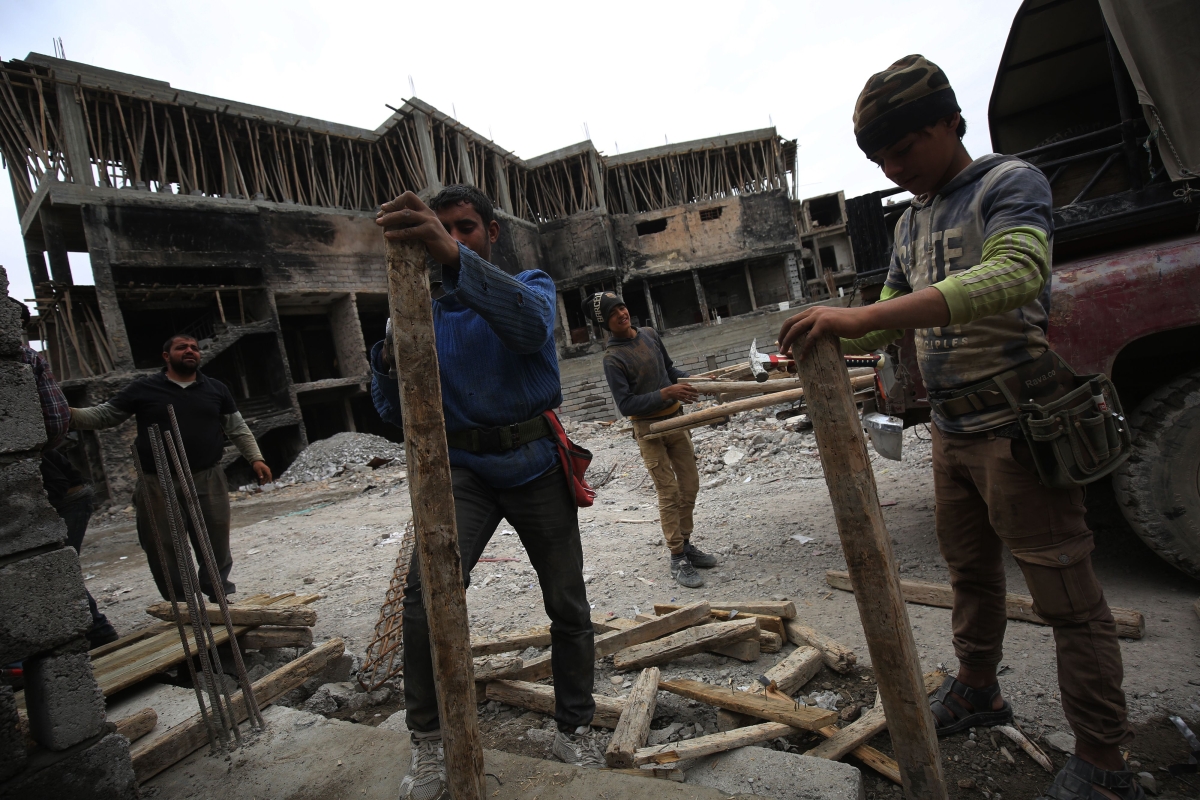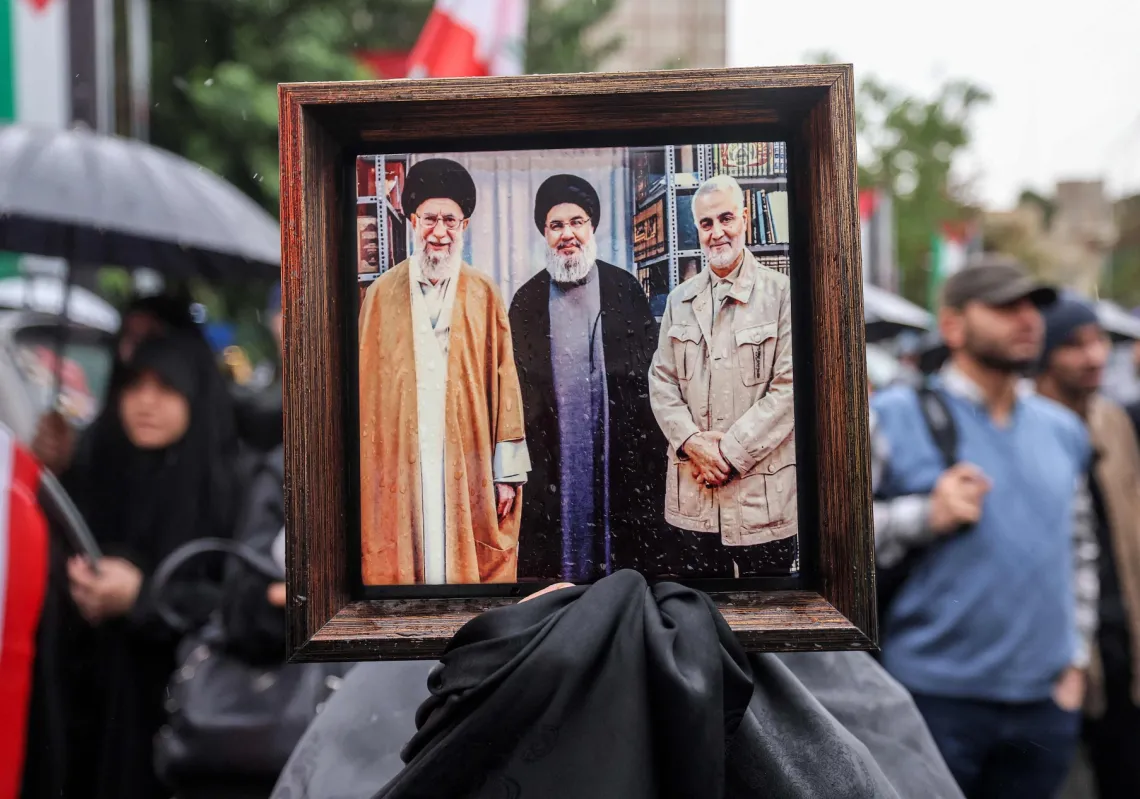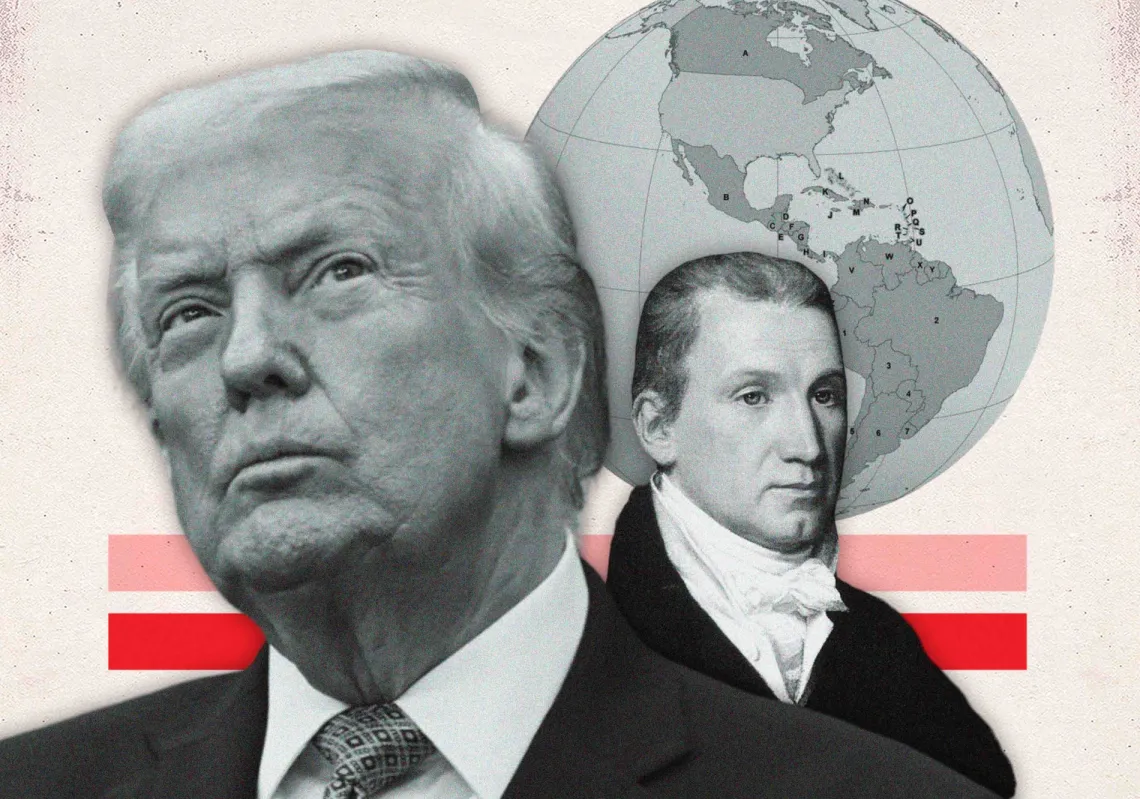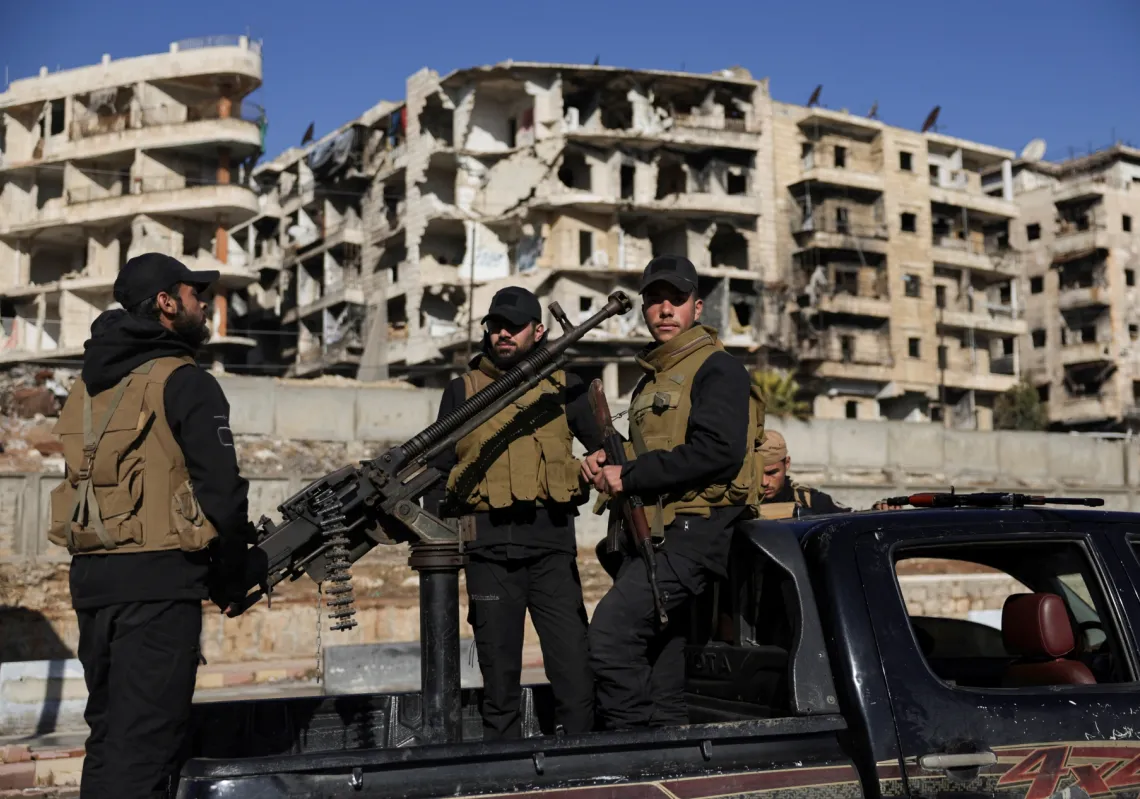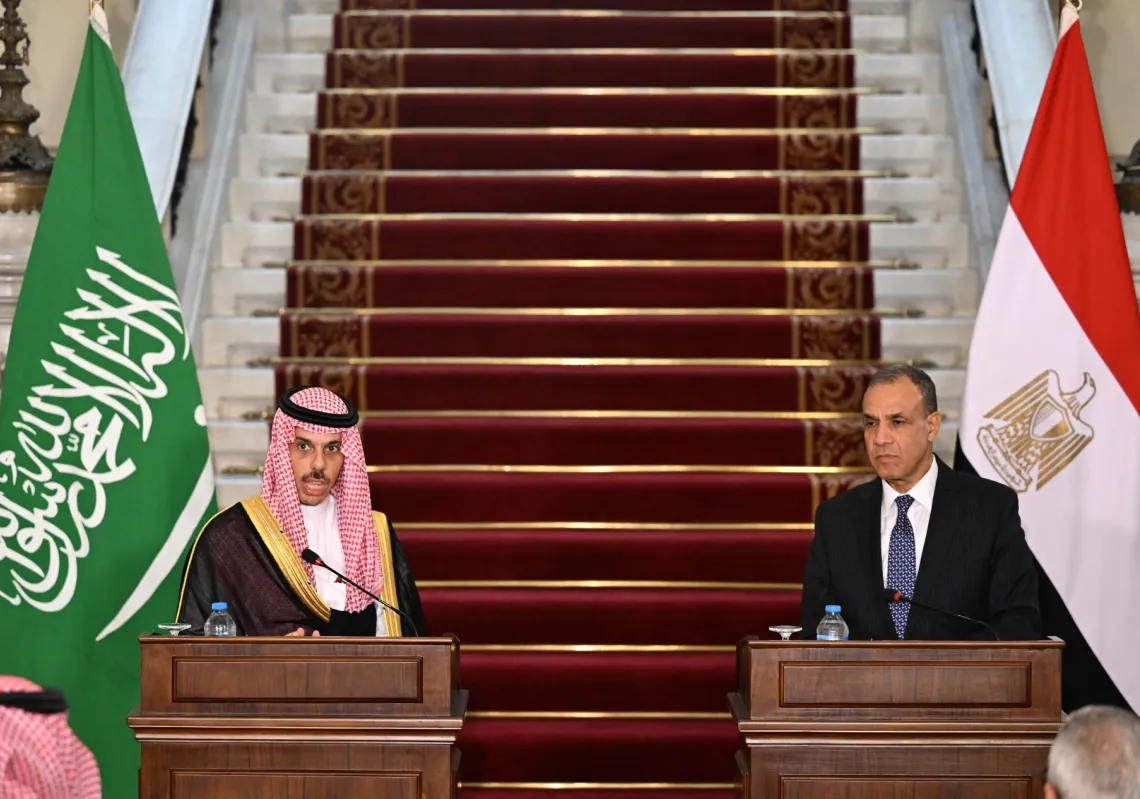 Iraqi workers repair a building on March 15, 2018 eight months after Iraqi forces liberated the city from the control of the Islamic State (IS) group fighters. (Getty Images)[/caption]
Iraqi workers repair a building on March 15, 2018 eight months after Iraqi forces liberated the city from the control of the Islamic State (IS) group fighters. (Getty Images)[/caption]
by Emma Sky
On May 12, Iraqis will head to the polls for parliamentary elections. These elections are coming at a pivotal moment. Since the Iraqi military announced the defeat of ISIS in December 2017, millions of refugees and displaced people have returned to their homes. In Mosul, students are now back in school and the library that ISIS destroyed is open again. Baghdad feels safer than it has at any point since 2003—shopping malls are doing good business, new coffeehouses are opening, and parks are once again full of families.
Iraq has been at a similar crossroads before. In 2010, after the defeat of al Qaeda in Iraq, the sectarian war appeared to be over and both Iraqis and Americans were hopeful that elections would put the country on the path to sustainable peace. But then it all unraveled. Although the incumbent prime minister, Nouri al-Maliki, who led the State of Law Coalition, did not win the most seats, the Obama administration threw its support behind him. The administration was convinced that Maliki was pro-American and would allow a small contingent of U.S. forces to remain in Iraq when the status of forces agreement between the two countries expired in 2011. They also calculated that maintaining the status quo was the quickest way to ensure that an Iraqi government would be in place ahead of U.S. midterm elections. In practice, however, this decision failed to help Iraq move beyond sectarianism and undermined the notion that change could come about through politics rather than violence.
After a drawn-out Iraqi government formation process, Iran ultimately outmaneuvered the United States by summoning the leaders of key Shiite factions to Tehran and pressuring them to unite behind a second Maliki term on the condition that all U.S. forces be withdrawn from Iraq. Only once this deal was agreed to were Kurdish and Sunni groups brought into the government, preserving the same dysfunctional system in which ministries are party fiefdoms and the country’s wealth is parceled out among the elites. In his second term, Maliki pursued policies that alienated large segments of the Sunni population, some of whom were also influenced by the sectarian rhetoric that was emerging from the Syrian civil war and intensifying regional competitions. These dynamics allowed ISIS to rise out of the ashes of al Qaeda in Iraq and present itself as the defender of Iraqi Sunnis against the Iranian-backed, Shia-dominated Maliki regime.
Baghdad feels safer than it has at any point since 2003—shopping malls are doing good business, new coffeehouses are opening, and parks are once again full of families
Today, with ISIS defeated, most Iraqis are cautiously hopeful about their country’s future. But jihadists (who are still lurking in the shadows and feeding off of Sunni resentment) are not the only challenge that Iraq will face going forward. The corrupt political class that has ruled the country since the fall of Saddam Hussein and the system of governance that supports this kleptocratic elite also threaten Iraq’s long-term stability.
THE POLITICAL SCENE
Although the Iraqi political landscape today is more fragmented than it was in the past, the same faces continue to dominate. Five separate Shiite tickets are competing in the upcoming elections: current Prime Minister Haider al-Abadi and his predecessor Maliki head separate lists within the ruling Dawa party; Hadi al-Ameri, the leader of the Badr organization, is allied with the Iranian-backed Shia militias of the hashd, also known as the popular mobilization forces, which have turned themselves into a political movement; and Shia religious leaders Muqtada al-Sadr and Ammar al-Hakim both lead their own parties. Because of the disastrous decision to push ahead with a referendum on the independence of Kurdistan in September 2017, the Kurds are now in their weakest position since the fall of Saddam. The main Kurdish political parties—the KDP and PUK—are dysfunctional, discredited in the eyes of younger Kurds, and increasingly opposed by other groups. They have lost control of the disputed territories including Kirkuk, and the budget transfer being offered to them by central government has dropped from 17 percent to 12 percent. As for the Sunnis and secular groups, they have three main lists headed by Jamal Karbuli, the former president of the Iraqi Red Crescent Society; Usama Nujaifi, the former speaker of the Iraqi Council of Representatives; and former Prime Minister Ayad Allawi, who is in an alliance with former Deputy Prime Minister Salah Mutlak and Speaker of Parliament Salim Jabouri.
With ISIS defeated, most Iraqis are cautiously hopeful about their country’s future. But jihadists are not the only challenge that Iraq will face going forward
In theory, Abadi is in a strong position to win a second term. He is credited with the defeat of ISIS and—among Iraq’s Arabs—with pushing back the Kurds and restoring central control over Kirkuk. As prime minister, he has skillfully balanced Iran and the United States, while also improving Iraq’s relations with its neighbors in the Gulf. In particular, he has made a breakthrough with Saudi Arabia, which is now playing a more constructive role in Iraq, funding government investment and supporting independent Shiite as well as Sunni moderates. These developments are helping to mitigate the sectarianism that escalated after the U.S. invasion.
[caption id="attachment_55256133" align="alignnone" width="940"]
 A picture taken on March 14, 2018 shows members of the Mosul vintage car group riding a Chevrolet vehicle as they cross the Nineveh bridge, previously known as Mosul's Old Bridge, during an inauguration ceremony following its reconstruction in the northern Iraqi city. (Getty Images)[/caption]
A picture taken on March 14, 2018 shows members of the Mosul vintage car group riding a Chevrolet vehicle as they cross the Nineveh bridge, previously known as Mosul's Old Bridge, during an inauguration ceremony following its reconstruction in the northern Iraqi city. (Getty Images)[/caption]
But despite Abadi’s having control over the instruments of government, including state media, and the support of key figures in the Dawa party, his campaign is poorly organized and uninspiring. Although he takes every opportunity to criticize Maliki for bankrupting Iraq and letting ISIS take over, Abadi has yet to set out how he will reform the economy and restructure public institutions, and his previous efforts to do so went nowhere. Abadi’s initial attempt to build political alliances also set off alarm bells. In January, he reached out to the hashd, hoping to preempt Maliki from gaining their support. Although the agreement broke down after 24 hours when the hashd withdrew, it damaged Abadi’s image with potential moderate partners.
Maliki is determined to prevent Abadi from gaining a second term. To block the prime minister, he has staked out a position closer to Iran and is seeking to ally with Iranian-backed Shia groups. But despite their disagreements, Maliki and Abadi are both committed to ensuring that the premiership remains within the Dawa party. Maliki appears to prefer to play the role of kingmaker rather than assume the premiership himself again.
A BETTER WAY FORWARD
To promote long-term stability in Iraq—a stated U.S. objective—the United States must not repeat the disastrous miscalculation that led it to back one man in 2010. Instead, Washington should help ensure that a coalition of moderate Shiite groups, in alliance with some of the Kurdish and Sunni parties, is able to form a government.
The fragmentation of the Iraqi political landscape means that there is potential for cross-sectarian alliances that could deliver on an agenda that counters corruption and improves governance and public services. And a more stable security situation provides an opportunity for Iraqis to move beyond identity politics to issues-based politics. The country needs to replace the current sectarian system with a government that is willing and able to implement genuine political and economic reforms. This is all the more pressing today because oil revenues are no longer enough to cover the budget and unemployment is rising, particularly among Iraqi youth.
To block Abadi from getting a second term, Nouri al-Maliki has staked out a position closer to Iran and is seeking to ally with Iranian-backed Shiite groups
But political fragmentation also opens up opportunities for Iranian hard-liners to assert their influence. With the Trump administration threatening to abandon the Iran nuclear deal, Iran’s Shiite allies in Iraq are increasingly calling for all U.S. forces to be withdrawn from the country. But the majority of Iraqis do not want to be dominated by Iran or any other external power. And Iran is facing its own challenges: it is overstretched in Syria, Ayatollah Khamanei is ailing, and this winter thousands of Iranians took to the street to protest the regime.
Iraqis still consider the United States a major player in their country, and Washington gives Iraqi politicians some leverage when it comes to Tehran. Going forward, the United States needs to provide the necessary incentives to help Shiite moderates in the face of pressure from Iranian and Iraqi hard-liners by pushing Kurdish and Sunni leaders toward them. Critically, Washington needs to demonstrate its long-term commitment to Iraq not only by training security forces but also by helping Iraq diversify its economy away from oil, supporting its efforts to improve relations with the Gulf, and encouraging U.S. companies to invest in the country.
This article was originally published on ForeignAffairs.com.


